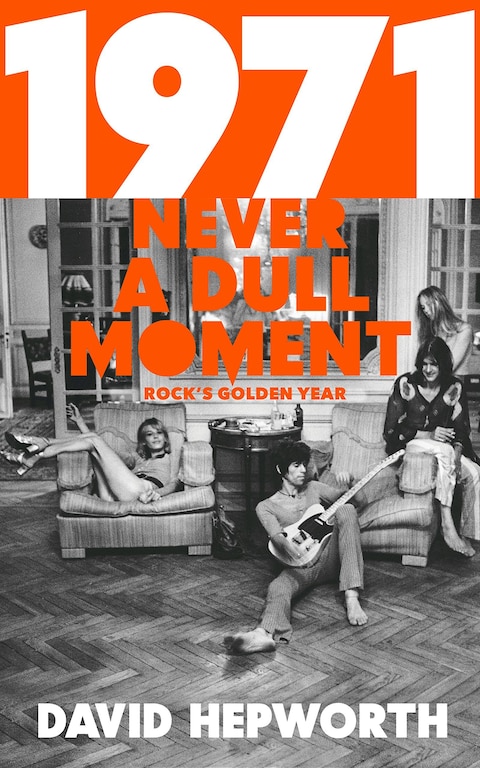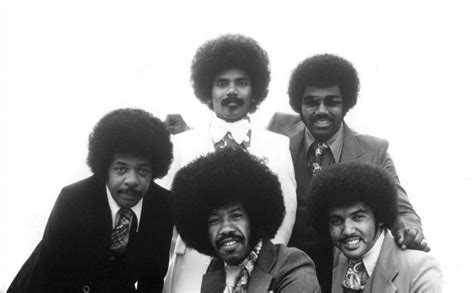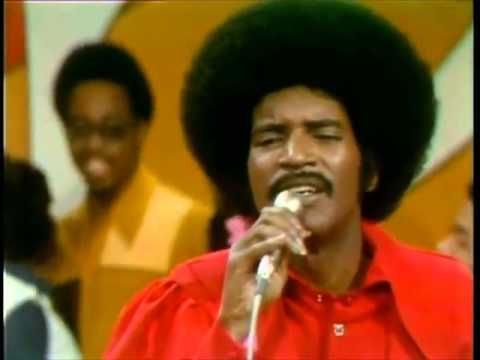
Hot Pants – James Brown
Hot Pants…

Number 2 Somerfield Road, Finsbury Park. Top flat – under the eaves, a one-room attic dwelling with two sloping ceilings. I lived there with Mumtaz, my girlfriend whom I’d left in 1980 to explore South America with my brother Paul for a year’s travel, but returned after four months spent in Mexico with tail between legs and Hepatitus B. She took me back in, and life went on. Finsbury Park, as noted in My Pop Life #42 was a delight. Every now and again we could hear a muffled roar of delight from Highbury as Arsenal scored. Not that often obviously, ha ha ha. One-nil to The Arsenal was the 80s cry. My beloved Brighton & Hove Albion’s cup run in 1983 took us to a semi-final against Sheffield Wednesday at Highbury. Down the road. I went to the game, which we won 2-1 thanks to a brilliant Jimmy Case free kick. We were in the Cup Final! 1983 was clearly a blessing all round. Laurie Jones was downstairs, communist, comrade, veteran of the Cable St riots against Moseley’s blackshirts and maker of his own wine. In work mode : the premiere and run of Steven Berkoff’s “West” at the Donmar Warehouse in May of that year. My first fully professional, fully paid proper acting job. We ran there for five months then filmed it for the new Channel 4 (see Let’s Dance My Pop Life #221).
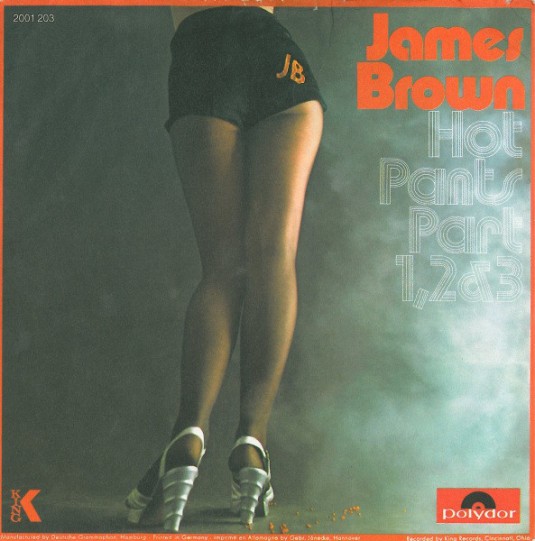
In saxophone playing mode I was on this tune – Hot Pants. Deceptively simple, it has to be precise, punchy, tongued exactly, every note must be the right length, it must attack, and the timing is everything. Like all of James Brown’s magnificent work, the percussive element is primary, and the bulk of the tune is carried over one chord until the bridge, the long awaited release of the bridge. Take it to the bridge. Shall I take it to the bridge? The famous cry from Sex Machine. One of the genius elements of James Brown is how long you have to wait for the bridge in almost every song. He knows his dynamics. So did George Mack.

Who? This fella, a tremendous Anglo-Nigerian singer from Finsbury Park. Where did we meet? How did we find out that we were both musicians? I cannae remember captain. But this I do know – I was playing Hot Pants in the flat while Taj was at work because the band I was in at this time – George’s band Arc Connexxion – had it in their set. I was one of three horns in Arc Connexxion, an afro-pop outfit which was a bit Fela Kuti, a bit soul, a bit funk, and a bit of George’s own compositions. It was fun. Looking back, it is exactly the kind of band I long to play in right now, here in New York : dance music with a brass/woodwind section, african-influenced.
I’d bought James Brown’s 30 Golden Hits while I was at LSE a few years earlier, exploring the landscape of soul music with my Glaswegian friend Lewis MacLeod. We were beyond aficionados, we were obsessed with hunting down the very best soul tunes of the previous 25 years. Motown of course, Stax Records indeed, Atlantic’s huge six-album box set, Philadelphia Records and then all the other smaller labels – Sue Records, Curtom, Brunswick, SAR, Hi, et al. I remember buying Stay With Me Baby by Lorraine Ellison one day like finding treasure on a desert island and we played it over and over, What A Difference A Day Makes by Esther Phillips, Why Can’t We Live Together by Timmy Thomas, Love TKO by Teddy Pendergrass, all golden.

But James Brown was the record which got played a lot. James Brown was on King Records, an independent label based in Cincinatti, Ohio. The greatest hits album was on Polydor and was a great primer to the man’s genius. Hard to remember life before the internet, but the moment I saw Please Please Please on television I’ll never forget – the famous cape drama, the anguish, the concerned bandmates, the eruption of emotion when the cape is cast aside Yet Again. It’s magical theatre of soul music so it is, check it out, never gets old :
Lewis and I were hooked frankly. Each song was better than the last – I Got You, Night Train, Think, I Feel Good, Out Of Sight, Try Me, I’ll Go Crazy, Poppa’s Got A Brand New Bag, Cold Sweat. We wished we could see him live. He never came. But, eventually, he did. It was in Brighton one summer in Stanmer Park in the year 2000. It was called the Essential Festival. James Brown’s star had waned, he hadn’t charted for years, but his name was still synonymous with legend. However, he was 67 years old, all the hype was that he only did 20 minutes in all, the bulk of the show was the band and younger singers & rappers. And by then I’d immersed myself in Live At The Apollo the greatest Live Album of all time, and gorged on the youtube clips of the man in his prime, It’s A Man’s Man’s Man’s World, Say It Loud (I’m Black And I’m Proud) and the ubiquitous, brilliant Sex Machine. I didn’t want those images to be replaced by a disappointment. So I actually chose not to go. Do I regret it now? Kind of. Yes. Of course. Other people I’ve rocked up to when in their 70s – McCartney, Aretha, Roberta Flack – and one in his 90s the amazing Tony Bennett – were all superb. We were a little nervous about Aretha because there was some word of mouth that sometimes she “doesn’t turn up”, well she certainly did that night (see My Pop Life #225) god bless her, so that was nonsense. But I remember distinctly deciding to swerve the great Godfather of Soul James Brown. A fairly childish decision really. The great festival- going kid of the 1970s had turned into the tight-assed muso-snob of the millenium. But since I wasn’t there, I can’t tell you about The Essential Festival that year. Silly me.

Arc Connexxion rehearsed at George’s house just down Blackstock Road from where I lived. Once a week in the evening. I do not remember the rest of the band at all. Who were they? A racially mixed bunch who could play Motown, Fela and James Brown. Out of my league perhaps, but playing a James Brown horn line is considerably easier than attempting John Coltrane or Stan Getz (see Desafinado My Pop Life #68), in fact playing in a horn section (this was my first time) is easier than playing solo. But you have to be tight. Tight as a camel’s arse in a sandstorm tight. The tongue on the reed has to be exact. Percussive. I loved it. Our crowning moment was playing at Notting Hill Carnival after Aswad in August 1983 where we were last on the bill, and didn’t get to play Hot Pants after all (see My Pop Life #42). We were hustled on and told we could play one song before the curfew and Carnival had to close. We played Martha Reeves’ Dancing In The Street, and hundreds of people who didn’t want to go home yet did just that. Fantastic. It was our biggest crowd ever.
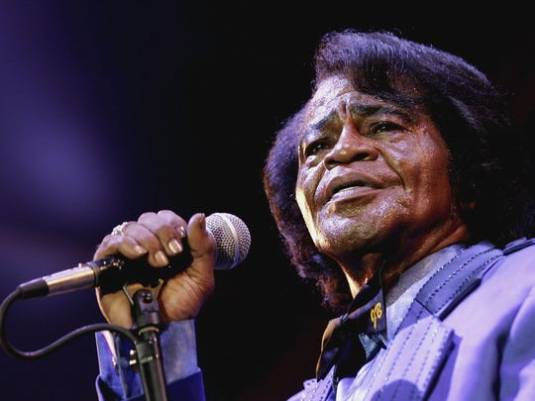
Jenny and Lulu went to the James Brown gig in 2000 and reported back disappointment and a sense of a great artist being wheeled out, a circus act. Jenny says that apparently James Brown actually was James Brown for one whole song (I should have gone), after which he went off and the young performers, rappers and funkateers played for 15 minutes before he came back, but he just couldn’t do it again and he simply stopped being James Brown and became a kind of JB tribute act and so she was sad. So was Lulu. A few years later Jenny and her sister Lucy saw Chuck Berry and Jerry Lee Lewis who were both in their late 80s and while Chuck was still Chuck Berry, Jerry was on a zimmer frame and scarcely present. I’ve felt this way about Brian Wilson, my absolute musical hero, for the last few years. They’re wheeling out a cash cow. He’s not Brian anymore. Leave him be.

But James Brown? If you think about it he has to be the greatest genius of popular music. You could argue Louis Armstrong and it might be difficult to resist. But JB is a giant. He emerged from the 1950s as a fully formed soul star before the term had even been invented, fusing R & B and gospel into a funk sound a whole decade before it was even thought of. During the 1960s the sound was honed and streamlined, the melody lines erased and the rhythms amplified and tightened. The Vocals were punctuated howls, shrieks, shouts and calls. Astounding. Pure dance music. Popular, political, immersive, irresistible. He was the first and most popular artist to be sampled on the turntables of DJs in the South Bronx, the drum breaks of Clyde Stubblefield are all over old skool hip hop. All hip hop. When he stole the rhythm and riff of Bowie & Lennon’s Fame from Young Americans for his song Hot (I Need To Be Loved, Loved, Loved) in 1975, no one blinked. I suspect Bowie thought it was an honour frankly, which indeed it was. JB was infamous for running his band like a military outfit, musicians would get fined for missing a cue or a bum note or a snare hit on the wrong beat or being seconds late for rehearsal. Not greasing their patent leather shoes or tying their bowtie. A number of times bandleader PeeWee Ellis walked out only to come back, but in 1970, Ellis, Stubblefield, Fred Wesley and the other Famous Flames never came back and JB then recruited players from Cincinatti band The Pacemakers to replace them, include Bootsy Collins (see Give Up The Funk My Pop Life #138). He called the new band The J.B.s. His rhythms are in house music, soul music, funk, hip hop, jungle, drum & bass, disco, you name it. Michael Jackson’s greatest influence. I can’t do him justice in this bloglet of mine and by the way he was probably bonkers too but what a musical giant. What a towering extraordinary figure in the musical landscape. What a force.
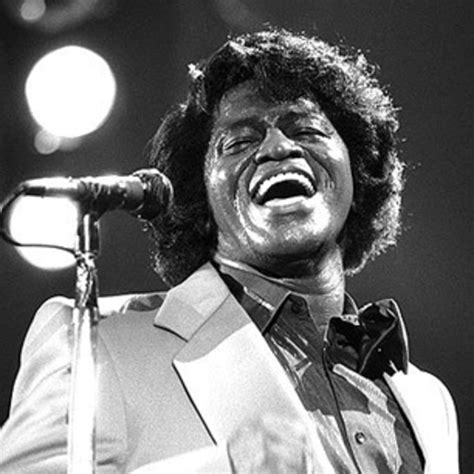
When The Brighton Beach Boys played people’s parties or weddings we would play a whole load of other material – disco, funk, ska, rock n roll and even Steely Dan and ELO, and when he can, our very own nutty drummer the itinerant rhythmicist Theseus Gerrard (mentioned in My Pop Life #111 and others) gets up to sing Get Up Offa That Thing and the whole room goes up to a different level. We played it at Caroline Lucas’ 50th birthday in Brighton at the Indica Gallery in town which is based in an old church, and Theseus quite naturally climbed into the still-present pulpit to deliver his message of funk. He’s a natural the fucker. The funk of forty thousand years.
So I’ve played at least two James Brown songs in my short musical career. Hot Pants is my favourite. Could I get to play anymore before my ultimate death? I’m 63 now. Time is ticking…
The original number one hit single from 1971, Parts One & Two
Live and direct in 1985…




